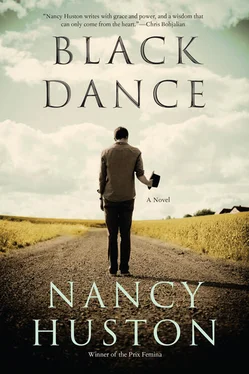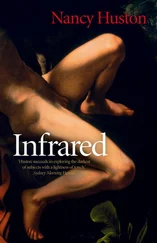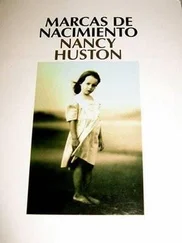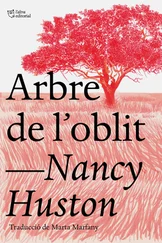Seated next to the wall, at the farthest end of the long maple wood table, Milo carefully pours vinegar into jars as his aunt peels and chops garlic across from him. Suddenly she looks up at him.
“You’re a little infidel, aren’t you?”
“Sorry?”
“You lived with a Protestant family and they put a bunch of lies in your head?”
“I dunno.”
“Do you believe, at least?”
“Believe what?”
“In everything the preacher says at Sunday Mass. In God the Father and the Holy Virgin and Our Lord who died on the Cross for our sins, and all the rest, and that if you don’t believe you’ll go to Hell?”
“. .”
“You don’t listen at all in church, do you?”
“. .”
“Don’t think I don’t notice it. I watch you and I can tell you’re not paying attention. You don’t sing with the rest of us and you don’t pray with the rest of us, you just sit there. You go off somwhere else in your head.”
“. .”
“That’s what you do, isn’t it, Milo? I’ve seen you, there’s no point in denyng it.”
“I don’t deny it.”
“Well, believe me, Milo, this won’t do at all. Because in two or three years you’ll have to go to catechism classes, and prepare for your confirmation, and prove that you’ve grasped the essence of the True Religion!”
“. .”
“That you’re not a heretic Protestant like the family your grandad found you in!”
“I’m not anything.”
Marie-Thérèse’s voice begins to rise.
“What do you mean, you’re not anything? You live with the rest of us, don’t you? Your name’s Noirlac, isn’t it? Like it or not, you’re part of this family, and I’m gonna teach you to be a good Catholic!”
The child’s stubborn silence makes her see red.
“You hear me, Milo? Otherwise you’ll land up at Bordeaux like your good-for-nothing of a father. . A lazybones delinquent! A parasite! Hey, are you listening to me? Hey, I’m talking to you! All right. .”
Taking the receiver off its hook on the wall, she clobbers him over the head with it. Bong!
Involuntary tears start to Milo’s eyes but he turns his head, looks out the window and concentrates on the falling snow. Joins up with the lion, the witch and the wardrobe, the little match girl, the ruby-eyed nightingale, the ugly duckling. Will not give his aunt the pleasure of making him cry. . (I can just see you, Milo, sitting way at the end of that table, scrunched up against the wall. I can see you. .) She hits him again. Bong! She’s acquiring a taste for that Bong!
“You’re proud, aren’t you? A boy from the big city, hey? Too good for us country bumpkins, hey? Is that it? Is that it, hey, you whore-son?” (Bong!) “Hey! Answer when you’re spoken to!” (Bong!) “Do you at least know you’re a whoreson? Well, if you didn’t know it before, you know it now. Oh, the bitch and the boozer, your parents were made for each other! Two losers! Two nothings! Son of nothing, son of less than nothing, that’s what you are — you hear me?” (Bong, bong!) “Son of absence!”
Milo’s head is on the table amidst the pickle jars. Since his arms are crossed over it for protection, Marie-Thérèse sometimes smashes his hands with the receiver. She’s out of control.
“Your slut of a mother didn’t want you. Minute you came out, she tossed you into the trash bin!” (Bong!) “That’s the way savages behave: mothers flick their babies away like gobs of snot.” (Bong!) “They don’t give a hoot in hell about their children’s souls!” (Bong!)
Just then the door bursts open and Régis stomps into the house, his boots covered in snow. A freezing gust of wind enters the room with him.
“Christ it’s cold out there!. . Hey! What’s going on?”
Seeing herself as he must see her, sweating, shouting and disheveled, towering over the cowering child, Marie-Thérèse freezes.
“Gotta teach him a lesson,” she mutters, hanging up the phone. “He’s bad seed. I gotta knock some sense into him.”
“Well, stop clobbering him over the head!” says Régis in an uncharacteristic display of marital authority. “Whip his ass, if you gotta whip something!”
“Yeah, a lot of good your discipline has done our boys. You never wanted to hit them, and look how they turned out! Two big brutes with no ambition. All they care about is getting drunk and chasing skirts. Those two’ll never be able to take over the farm.”
“At least find something else to hit him with. That phone’s brand new! You’ll damage it.”
“So. . I won’t let you spoil Milo the way you spoiled the other two, you hear me? I’ll take care of Milo. Listen, Régis” (she lowers her voice), “that boy is smart.”
“Okay, do as you please. I could care less about Milo, anyway. He’s your nephew, not mine. Do as you please.”
“You bet I will!”
Régis treads out of the room, exhausted, and Marie-Thérèse sits down next to Milo on the bench.
“Come on, little one,” she says, cajoling and kissing him. “Let’s make up. I like you a lot, you know. The two of us are going to get along just fine, you’ll see. Come on, relax, sit down beside me. . I’m your mom now. You know that, don’t you? Your other mom’s probably no longer of this world. . The gutter kills. . She prob’ly shot up, too. . Hey, come on, Milo, darling, give Auntie Thérèse a little kiss. .”
She pulls him close, but he goes so rag-doll limp that all she can do with his body is release it.
“Okay, well. . It’s getting late. Go ahead, run off to bed. I’ll finish up the job by myself, as usual. No hard feelings, hey? No hard feelings, Milo?”
BLACKOUT. .
I REALLY SHOULD write a book about passivity someday. I hope you’ll forgive me for having put my own words in Thom’s mouth, in the scene at Saint Stephen’s Green: Passivity! The greatest force in human history! Also one of the most cruelly underestimated, since people prefer to see themselves as courageous, in charge of their own lives. . and, especially, free! Freedom is described in contemporary novels and newspapers as that without which human beings cannot survive — oh, but we can, we can, and we do! Freedom is anything but an irresistible impulse, an overwhelming urge, the smallest common denominator of humankind. On the contrary, it’s a rarity. A luxury, like gilt hummingbirds’ eggs. The vast majority of human beings don’t give a hoot in hell about freedom. They care about two other things — doubtless wired together in our reptilian brains — survival and group acceptance.
No, love, I’m not talking about you — I know you’re no more passive than a possum. But you’re the one who got me interested in the subject, and. . Okay, Astuto, okay, I’ll stop speechifying. No need to rub it in. I know I’m in no state to write a book.
• • • • •
Neil, September 1917
WE COME UPON our young hero hunched over his desk in a corner of his bedroom. Sun streams through the frilly white curtains to his left, making the blankness of his pages painfully bright. Behind him, the maid is loudly plumping up the pillows on the bed.
“Shall I make you a cup of tea, sir?”
“No. Please. Please, Daisy, how often must I ask you not to speak to me when I’m writing? Can you see that I’m writing, yes or no?”
“No, sir.”
“Oh! Even when his pen isn’t dashing madly across the page and being dipped into fresh ink every few seconds, a man seated at a writing desk in front of a sheet of paper is writing, Daisy.”
“Yes, sir.”
“An important part of writing, indeed the most important part, takes place before the pen gets set to paper, inside the brain. The mysterious, burning furnace of the brain, wherein spiritual metals are molten and smolten. Through a series of chemical reactions, these cause floating, inchoate forms to appear, then thrust them into reality, where they miraculously crystallize into works of art that seem to us as immutable and inevitable as if they had always existed.”
Читать дальше












